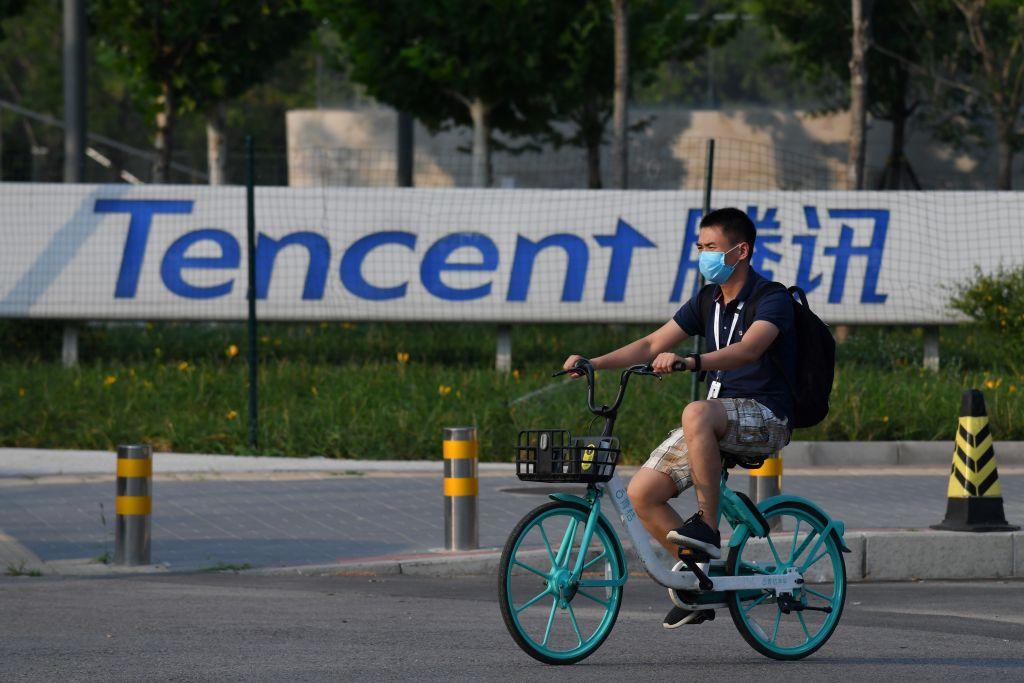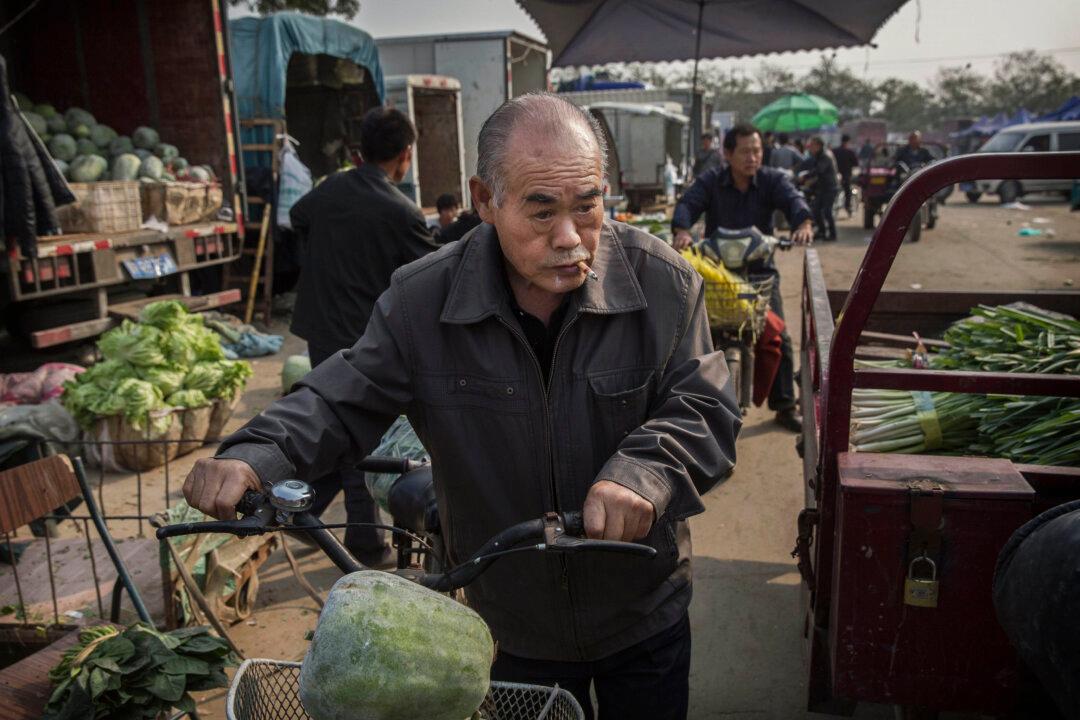Commentary
Finally, there is increasing clarity around how the Chinese Communist Party (CCP) intends to regulate its giant corporations, which is invaluable to U.S. investors assessing Chinese stocks.Regulatory guidance has come fast and furious over the last several months, sending Chinese stocks—at least those traded in the United States—into a tailspin. And most recently, CCP leader Xi Jinping’s directive to increase “common prosperity” has only elevated volatility as investors look to analyze its impact.
Curiously, there’s a certain divergence with regard to how investors have reacted to the recent regulatory deluge.
The KraneShares CSI China Internet ETF, which tracks a basket of Chinese technology firms listed in the United States and Hong Kong, has declined more than 45 percent since March 1.
By comparison, the VanEck Vectors ChinaAMC SME-ChiNext ETF, which tracks a basket of top 100 domestic A-share stocks listed on the ChiNext board in Shenzhen—where most of China’s technology firms are listed domestically—is essentially flat (only down 0.3 percent) during the same time period.
Why are the offshore companies significantly underperforming onshore stocks? It’s especially interesting since offshore technology companies tend to be the more prominent names such as Tencent, Alibaba, and Meituan. There are a few theories.
The first is that offshore listed companies all sold their shares via a unique structure called a variable interest entity (VIE), the legal status of which is questionable and therefore requires a large market discount.
The second factor is that foreign investors—who make up the majority of investors of offshore listings in New York and Hong Kong—hold a far more pessimistic interpretation of recent developments than Chinese domestic investors.
The first issue, the VIE discount, is likely to largely resolve itself soon.
The CCP plans to propose rules banning Chinese technology companies with large amounts of sensitive data from issuing their initial public offering (IPO) in the United States, the Wall Street Journal, citing anonymous sources with knowledge of the discussions, reported on Aug. 27. In addition, technology companies must obtain Chinese regulatory approval prior to listing their shares on U.S. stock exchanges, which was not a required step in the past.
That clarifies several questions. Future Chinese technology IPOs—those allowed to list in the U.S. markets going forward—will be sanctioned by the CCP to do so. Implicit in such approval is an assurance that Chinese securities regulators condone the VIE corporate structure, the legality of which was previously suspect.
In addition, Chinese regulators have recently made overtures to the U.S. Securities and Exchange Commission to begin dialogue around sharing of audit work papers with U.S. regulators. Details around the degree of collaboration are still to be discussed, but Beijing’s directive to ban certain IPOs could pave the way for the CCP to share audit documents on companies it deems to be less sensitive.
The second factor of foreign investors being more pessimistic than their Chinese counterparts is due to Xi’s recent “common prosperity” doctrine, which had raised eyebrows abroad. Some U.S. investors have questioned whether the CCP is ready to persecute its entrepreneurs and neuter successful businesses.
That interpretation may be a slight overreaction.
Caixin, a mainland Chinese business magazine, provides this context:
“Since the launch of reform and opening-up in the late 70s, China’s economy has fulfilled the first part of Deng Xiaoping’s idea of letting some people get rich first so they could stimulate others, and thus realizing common prosperity in China. However, changes in the internal and external economic and political environment have prompted the inclusion of a ‘tertiary distribution mechanism’ in the CCP’s official documents in recent years.”
What’s a “tertiary distribution mechanism?“ It’s CCP jargon describing ”voluntary” wealth distribution. In this case, it may be an involuntary voluntary. Tertiary distribution encourages China’s successful entrepreneurs and corporations to give back and enact more social programs. It’s essentially a supercharged version of ESG (environmental, social, and governance) and charitable programs Western corporations have embraced in recent years.
It is a form of “nanny state,” and part of Beijing’s recent efforts to control the social and political environment. There is debate over whether this is a feature or bug within a functional capitalist marketplace, and this is where foreign investors and Chinese investors are likely to disagree.
But China is a communist country and the CCP has chosen this path.
To wit, China’s Supreme People’s Court on Aug. 27 declared the notorious “996 culture” to be illegal. “996” is a code name of employees working from 9 a.m. to 9 p.m., six days a week, a controversial policy common in China’s technology companies. One can argue that such work ethic has helped build China’s successful technology giants, but the policy is highly unpopular among employees.
In August, state media in China called online games a form of “spiritual opium.” An article in Economic Information Daily criticized video game addiction and called for restrictions on the video game industry to wean youth off video games. The news sent shares of offshore-listed game publishers such as NetEase and Tencent tumbling.
Earlier this year, Beijing announced rules to restrict the business models of for-profit tutoring and education companies. The regulations—which were meant to curb the proliferation of expensive after-school tutoring and the tremendous stress it places on parents and children—effectively killed the business models of certain U.S.-listed companies such as TAL Education.
China also enacted laws to improve the wages and benefits of gig workers such as those working for Chinese food delivery giant Meituan. And the list goes on.The regime calls these necessary reforms to improve the quality of life for Chinese people. At the same time, it has made a point of announcing that its goal is not to kill innovation or punish its successful entrepreneurs and their businesses.
One can understand the appeal of such measures from the perspective of a common urban dweller living in China. But how should global investors interpret these developments?
I don’t expect Beijing to kill off industries. But profitability will be hurt as China enacts broader taxes and forces more compliance costs upon companies. Beijing needs to grow its domestic industries and financial markets as it prepares to become more insular.
The social change aspect is well telegraphed and investors should keep this top of mind while evaluating news coming out of Beijing. China’s wealth inequality is some of the highest in the world, and getting worse. Caixin estimated that China’s richest 1 percent hold 31 percent of the country’s wealth. For Xi to target a third term next year, and for the CCP to maintain its grip on power, it needs to keep social order and ensure the majority of the populace is content and happy.
Xi was vice president of China in 2011 when the “Arab Spring” protests occurred throughout the Middle East. He studied the events closely and told then-U.S. Vice President Joe Biden that such uprisings came about because the governments had lost touch with their people.
The recent market developments out of China could be part of the CCP’s plan to get back “in touch” with the Chinese people.





